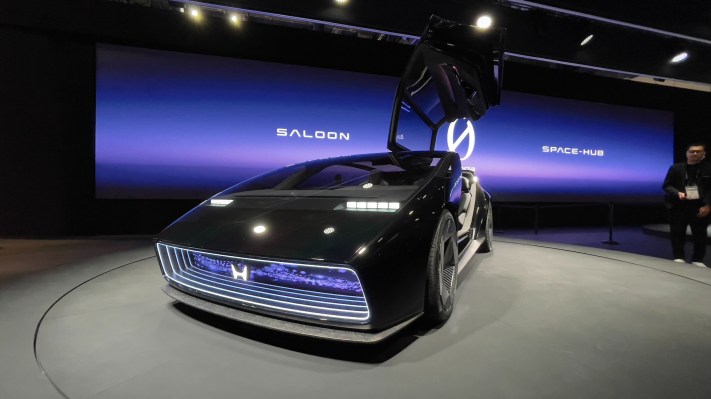
The Station is a weekly newsletter dedicated to all things transportation. Sign up here — just click TechCrunch Mobility — to receive the newsletter every weekend in your inbox. Subscribe for free.
Hi folks, I’m back from CES 2024 and ready to share what I saw and heard!
But first, big changes are coming to this weekly transportation newsletter. We’re retiring “The Station” name. Next week, look for “TechCrunch Mobility” in your inbox. Inside, you’ll find the same insightful transportation news, although it will be delivered in more digestible bites.
Want to reach out with a tip, comment or complaint? Email Kirsten at kirsten.korosec@techcrunch.com. Reminder that you can drop us a note at tips@techcrunch.com. If you prefer to remain anonymous, click here to contact us, which includes SecureDrop (instructions here) and various encrypted messaging apps.
CES 2024
Another crazy CES 2024 has wrapped and I saw a lot.
To get a sense of the main transportation tech trends at CES 2024, check out my roundup here. Tl;dr: AI, EVs, automated driving, in-car tech and buzzy talk about the software-defined car was everywhere. But also, hydrogen!
I also spoke to a lot of startup founders about their biggest challenges and hopes for 2024. There is still some concern around fundraising, although for the first time in awhile I heard an upbeat tone from investors and founders alike.
Here is a sample of our CES 2024 coverage:
• Kodiak Robotics reveals its best shot at making self-driving trucks a business
• Hyundai says its electric air taxi business will take flight in 2028
• Honda bets its electric future on ‘thin, light’ 0 series EVs at CES 2024
• Mobinn developed a delivery bot that can handle stairs with ease
• Pivotal kicked off US sales of its lightweight electric personal Helix aircraft
• Volkswagen is bringing ChatGPT into its cars and SUVs
Deal of the week
Micromobility companies focused on shared rides keep on consolidating. The latest deal is between Dott and Tier, two leading European companies in the space, announced plans to merge. The transaction is expected to close within two months.
Industry watchers are likely not surprised. Free-floating scooter and e-bike companies have been struggling. Within the past month, Superpedestrian announced that it would shut down and Bird filed for bankruptcy.
Dott and Tier execs are betting that combining teams and operations is the best part to profitability.
Other deals that got my attention …
Finn, a Munich-based startup that operates a platform for new car subscriptions raised €100 million ($109-110 million) in a Series C round that values the company at €600 million post-money ($658 million at current rates). Planet First Partners, a European growth equity firm, led the round.
Another piece of bankrupt Proterra has been sold. Phoenix Motor acquired Proterra’s transit business line.
HAAS Alert, which delivers road safety information and hazard warnings via in-vehicle electronic notifications, raised $15 million from Boston growth-equity firm Volition Capital.
Notable reads and other tidbits
Autonomous vehicles
Anthony Levandowski wrote an op-ed for TechCrunch that gives his view on whether 2024 will (finally) be the year of the autonomous vehicle?
TuSimple is putting some of its self-driving trucks up for auction following its U.S. exit.
Waymo plans to start testing its driverless passenger vehicles on the highway later this month.
Electric vehicles, batteries & charging
Google keeps rolling out features aimed at EV owners; the latest feature shows real-time battery info in Google Maps.
Hertz is dialing back its big EV play. TC+ reporter Tim de Chant weighs in on why in an article that focuses on ride-hailing.
Kia revealed a new commercial EV lineup and already has lined up Uber as a partner.
Lordstown Motors, the bankrupt EV startup, could be on the hook for $45 million for violating federal securities laws.
Lucid’s latest delivery data shows its sales slump is persisting even as it slashes prices.
Tesla is now selling the revamped version of its Model 3 sedan in the United States, just four months after it debuted in China and Europe.
In-car tech and security
Hyundai Motor India said it fixed a bug that exposed customers’ personal data
WTF is a software-defined vehicle? TechCrunch takes on this hyped up term.



